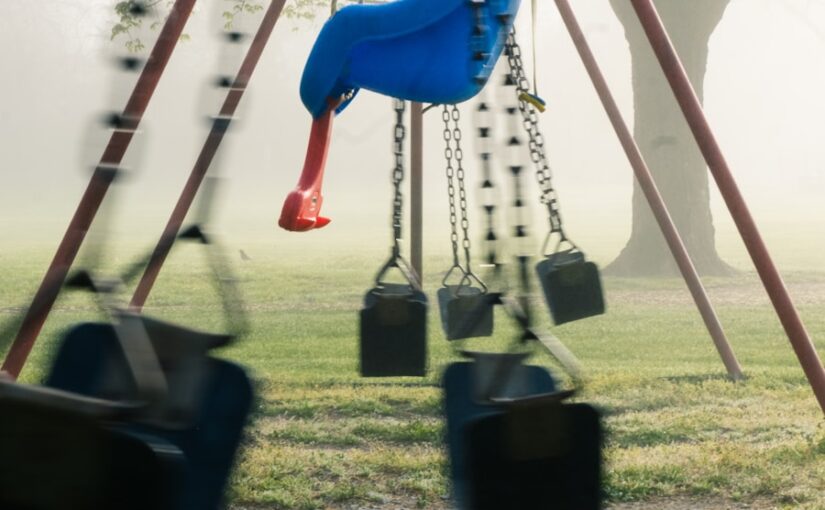When you venture into the world of bounce house rentals, understanding liability and insurance requirements is paramount. As a business owner, you must recognize that accidents can happen, and being prepared is essential to protect yourself and your assets. Liability insurance serves as a safety net, covering potential claims arising from injuries or damages that may occur during the use of your equipment.
This type of insurance not only safeguards your financial interests but also enhances your credibility in the eyes of customers. By having adequate coverage, you can reassure clients that you take their safety seriously, which can be a significant selling point for your business. Moreover, it’s crucial to familiarize yourself with the specific insurance requirements in your state or locality.
Different regions may have varying regulations regarding the minimum coverage needed for bounce house operations. You should consult with an insurance professional who specializes in recreational equipment to ensure you have the right policy in place. This proactive approach not only protects you from unforeseen circumstances but also helps you navigate the complexities of liability claims should they arise.
By understanding these requirements thoroughly, you can focus on providing a fun and safe experience for your customers without the looming worry of potential legal issues.
Compliance with Local Zoning and Permit Regulations
Navigating local zoning and permit regulations is another critical aspect of running a bounce house rental business. Each municipality has its own set of rules governing where and how inflatable structures can be set up. Before launching your business, you should research the zoning laws in your area to ensure compliance.
This may involve checking with local government offices or zoning boards to determine if there are any restrictions on operating a bounce house rental service in your desired location. Understanding these regulations will help you avoid fines or shutdowns that could jeopardize your business. In addition to zoning laws, obtaining the necessary permits is essential for legal operation.
Depending on your locality, you may need specific permits to set up bounce houses at public events or private parties. These permits often require you to demonstrate compliance with safety standards and liability insurance coverage. By proactively securing the required permits, you not only adhere to local laws but also build trust with your clients, showing them that you are committed to operating within legal boundaries.
This diligence can set you apart from competitors who may overlook these important steps.
Ensuring Safety Standards for Bounce House Equipment
Safety should always be at the forefront of your bounce house rental business. Ensuring that your equipment meets safety standards is not just a legal obligation; it’s a moral one as well. Regular inspections and maintenance of your bounce houses are essential to guarantee that they are in good working condition.
You should check for any signs of wear and tear, such as frayed seams or damaged inflatables, before each rental. By prioritizing safety, you minimize the risk of accidents and injuries, which can have serious repercussions for both your customers and your business. Additionally, it’s important to educate your clients about safety guidelines when using bounce houses.
Providing clear instructions on how to use the equipment safely can significantly reduce the likelihood of accidents. You might consider including safety rules in your rental agreements or creating informative flyers to distribute at events. By taking these proactive measures, you not only protect your customers but also enhance your reputation as a responsible business owner who values safety above all else.
Adhering to Consumer Product Safety Commission Guidelines
The Consumer Product Safety Commission (CPSC) provides essential guidelines for inflatable amusement devices, including bounce houses. As a responsible business owner, it is crucial for you to familiarize yourself with these guidelines to ensure compliance and promote safety. The CPSC outlines specific requirements regarding the design, manufacturing, and operation of inflatable structures.
By adhering to these guidelines, you can significantly reduce the risk of accidents and injuries associated with bounce houses. Incorporating CPSC guidelines into your operations involves several key practices. For instance, ensuring that your bounce houses are made from durable materials that meet safety standards is vital.
Additionally, you should be aware of weight limits and age restrictions for users to prevent overcrowding and potential accidents. Regularly reviewing CPSC updates will keep you informed about any changes in regulations or recommendations, allowing you to adjust your practices accordingly. By prioritizing compliance with CPSC guidelines, you not only protect your customers but also position your business as a leader in safety within the bounce house rental industry.
Maintaining Proper Documentation and Records
Proper documentation and record-keeping are essential components of running a successful bounce house rental business. Keeping detailed records helps you track equipment maintenance, customer interactions, and financial transactions, which can be invaluable for both operational efficiency and legal protection. For instance, maintaining logs of inspections and repairs ensures that you can demonstrate compliance with safety standards if needed.
This documentation can also serve as evidence in case of disputes or claims related to injuries or damages. In addition to equipment records, it’s important to keep thorough documentation of customer agreements and waivers. These documents outline the terms of service and include liability waivers that protect your business from potential legal issues.
By having clear agreements in place, you establish expectations with your clients while also safeguarding yourself against claims that may arise from accidents during rentals. Regularly reviewing and updating these documents will help ensure that they remain relevant and legally sound, providing an additional layer of protection for your business.
Employee Training and Certification Requirements
Your employees play a crucial role in the success of your bounce house rental business, making training and certification essential components of your operations. Properly trained staff members are better equipped to handle equipment setup, customer interactions, and emergency situations that may arise during events. Investing time in training programs not only enhances employee performance but also contributes to a safer environment for customers using the bounce houses.
Certification programs related to inflatable amusement devices can provide valuable knowledge about safety standards and operational best practices. Encouraging your employees to pursue these certifications demonstrates your commitment to professionalism and safety within your business. Additionally, regular training sessions can help reinforce safety protocols and keep staff updated on any changes in regulations or procedures.
By prioritizing employee training and certification, you create a knowledgeable team that can effectively manage operations while ensuring a safe experience for all customers.
Addressing ADA Accessibility and Accommodations
As a bounce house rental business owner, it’s important to consider accessibility for all potential customers, including those with disabilities. The Americans with Disabilities Act (ADA) sets forth guidelines that require businesses to provide reasonable accommodations for individuals with disabilities. This means that when setting up bounce houses at events or parties, you should assess how accessible the equipment is for everyone.
To address ADA accessibility, consider investing in inflatable structures designed specifically for individuals with mobility challenges. These units often feature ramps or lower entry points that make it easier for users with disabilities to access the bounce house safely. Additionally, training your staff on how to assist individuals with disabilities can enhance their experience while using your equipment.
By being proactive about accessibility, you not only comply with legal requirements but also demonstrate inclusivity and compassion toward all customers.
Staying Informed on Evolving Legal Regulations and Standards
The landscape of regulations surrounding bounce house rentals is constantly evolving, making it essential for you to stay informed about any changes that may impact your business. Regularly reviewing local laws, industry standards, and safety guidelines will help ensure that you remain compliant and avoid potential legal issues down the line. Subscribing to industry newsletters or joining professional organizations can provide valuable insights into emerging trends and regulatory updates.
Additionally, networking with other professionals in the bounce house rental industry can offer opportunities for knowledge sharing and collaboration on best practices. Engaging in discussions about legal regulations can help you gain different perspectives on how to navigate challenges effectively. By staying informed about evolving legal standards, you position yourself as a responsible business owner who prioritizes compliance and safety while fostering a positive reputation within the community.
In conclusion, running a successful bounce house rental business requires diligence in various areas ranging from liability insurance to employee training and ADA compliance. By understanding these critical aspects and implementing best practices, you can create a safe and enjoyable experience for your customers while protecting your business interests.

